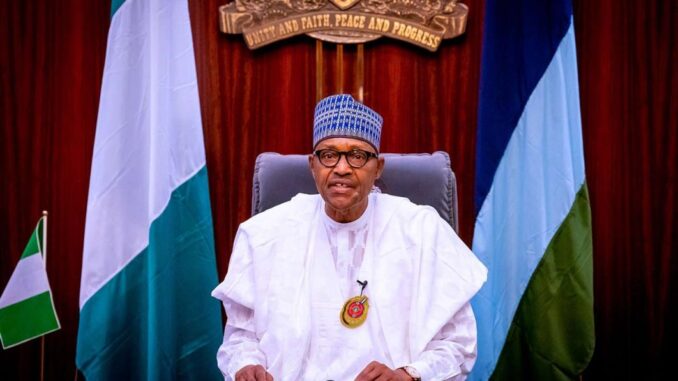
By Njadvara Musa, Maiduguri
The debate and calls for a restructured Nigeria have had no let or hindrance, validating the point that nothing can stop an idea whose time has come. But to add a caveat only perhaps outright foolishness can.
Today, there’s a consensus that Nigeria is not working as presently constituted. Against this context, the 2021 birthday lecture of the sage, Chief Obafemi Awolowo became the new conversational theatre to push the “envelope” of an incongruous polity that is Nigeria. The interlocutors were eminent Nigerians including Chief Emeka Anyaoku, former Commonwealth Secretary-General; Professor Wole Soyinka, the Nobel laureate, the Sultan of Sokoto, Muhammad Sa’ad Abubakar III, and the former private secretary to the sage, Odia Ofeimun.
The issues at the colloquium centred on the need to redesign the Nigerian state to sustain its unity. Professor Soyinka was characteristically forthright at the lecture themed ‘Whither Nigeria?’ organised by the Obafemi Awolowo Foundation in Ikenne, Ogun State. He said that to tackle some of the major challenges confronting the country, restructuring was imperative and further observed that only foolishness could force disbelief of the urgency of the moment in relation to redesigning the extant state structure. In his words, “There is a consensus that this country whether in terms of governance, economic relations, security, educational policy, cultural policy, among others, requires restructuring…Even the word ‘restructuring’ has been restructured in many directions, in cogent expression, which will mean the same thing for everybody.”
Nevertheless, in the context of the raging battle for restructuring, he advised incumbent state actors, especially state governors who appeared lukewarm on the matter to be forthcoming because the immense value of autonomy for the present governance environment cannot be over-emphasised. Therefore, the Nobel laureate urged the governors to “Push this federal envelope as far as it can go, even while we undertake the technical aspect of restructuring whether in terms of dialogue, evolving the constitution or whatever, something has to go on, after all, we’ve had so many of these confabs.” We can infer from the speech of the Nobel laureate that the times call for the exploitation of whatever lacuna and lease that are allowed by the extant 1999 Constitution as amended to fulfill in the interim the improvement of the welfare of the people and abandoned the prevalent “ feeding bottle” mentality, in other words, a fixation on the provisioning from the central government.
Some weeks earlier, another Nigerian, the President of the African Development Bank (AfDB), Dr. Akinwunmi Adesina, seized the inauguration of Governor Rotimi Akeredolu for a second term in office to proffer a solution to the Nigerian skewed federal structure. In his keynote lecture titled, “Restructuring: Why Nigeria is not working”, he argued that Nigeria was not working due to the weird practice of what he called “fatherism” instead of federalism. He underlined the present contradictions of the Nigerian state to include perennial dependency on the centre in the midst of abundant resources; poverty in the midst of plenty; paralysis of a federal monthly grant; time-wasting fixation on “federal Manna” to the detriment of a focus on governance in the respective states, and the country’s monoculture economy based on sales of crude oil. Characterising the country, he made the point that, “This is federalism of fiscal dependency. It is federalism that’s fiscally unhealthy for the states and the Federal Government. Because Nigeria depends on oil for over 70 per cent of government revenue, any decline in the price of oil creates fiscal and economic volatilities that reverberate across the states.” The federal practice in Nigeria he argued had undermined the fiscal health of its constituents and inclined the country towards “fatherism”.
By way of recommendation, he urged Nigeria to opt for the United States of Nigeria (USN) in contradistinction to the present ‘fatherism’ we practiced instead of true federalism. Also, he stressed the point that “What’s needed is greater economic and fiscal autonomy for the states. The issue is less about states or regional autonomy, but the financial and economic viability of Nigeria’s constituent states”. For him, political autonomy would be meaningless without greater fiscal self-reliance at the state level.
The points made by these eminent Nigerians are loud enough for those who have ears to hear. No doubt, Nigeria is in a parlous state. While some would argue it is not failing, we make bold to say it has failed with the widespread insecurity and ungoverned spaces induced by those who pretend to preside over the country. Perhaps, the only way out of the state collapse and apparent negative sovereignty is to restructure this fallen house. Nigerians are watching for eventuality with pains and so is the world that wants to see if the governing elite can pull the country from the brink instead of the ongoing crisscrossing of the country to reconstitute themselves over the governing of a fallen edifice. They should avail themselves of the tool of governability that federalism offers, lest they make disruptive change inevitable.
END

Be the first to comment